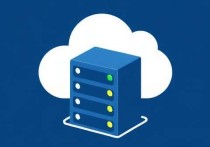Understanding Cloud Servers:A Comprehensive Guide
云服务器是一种基于云计算技术的虚拟服务器,提供灵活的计算资源和存储能力,它通过按需分配资源,帮助企业实现弹性扩展和成本优化,云服务器具有高可用性、安全性以及快速部署的优势,适用于网站托管、数据处理、应用开发和测试等多种场景,通过云服务器,用户可以轻松管理资源,提升业务效率并降低运维成本。
In the rapidly evolving landscape of technology, cloud servers have emerged as a cornerstone of modern computing. As we stand in 2025, the reliance on cloud-based solutions has never been more pronounced, with businesses and individuals alike leveraging the power of cloud servers to streamline operations, enhance scalability, and reduce costs. This article delves into the world of cloud servers, exploring their definition, benefits, applications, and future trends.
What Are Cloud Servers?
A cloud server is a virtualized computer resource that operates in a remote data center, accessible over the internet. Unlike traditional physical servers that require on-site hardware, cloud servers are hosted by third-party providers, offering users the flexibility to scale resources up or down based on demand. These servers are designed to provide high performance, reliability, and security, making them an ideal choice for businesses of all sizes.
Types of Cloud Servers
Cloud servers can be categorized into three primary types:

-
IaaS (Infrastructure as a Service): This model provides users with virtualized computing resources over the internet, such as virtual machines, storage, and networks. Users have full control over the operating system, storage, applications, and networking components.
-
PaaS (Platform as a Service): PaaS offers a platform that allows users to develop, run, and manage applications without the complexity of building and maintaining the underlying infrastructure. It is ideal for developers who want to focus on coding without worrying about the infrastructure.
-
SaaS (Software as a Service): In this model, software applications are hosted centrally and made available to users over the internet. Examples include cloud-based email services, customer relationship management (CRM) systems, and productivity tools.
Benefits of Cloud Servers
The adoption of cloud servers has brought about numerous advantages, making them a preferred choice for businesses worldwide.
Scalability and Flexibility
One of the most significant benefits of cloud servers is their ability to scale resources dynamically. Businesses can easily adjust their computing power, storage, and bandwidth based on current demands, ensuring optimal performance without over-provisioning resources.
Cost Efficiency
Cloud servers operate on a pay-as-you-go model, allowing businesses to only pay for the resources they use. This eliminates the need for large upfront investments in hardware, making cloud computing a cost-effective solution, especially for startups and small businesses.
High Availability and Reliability
Cloud service providers typically offer robust infrastructure with multiple redundancies, ensuring high availability and minimal downtime. Data is often stored across multiple servers and locations, providing an additional layer of redundancy and disaster recovery capabilities.
Enhanced Security
Cloud providers invest heavily in security measures, including data encryption, access controls, and regular security updates. This ensures that user data is protected from potential threats, offering a higher level of security compared to on-premises solutions.
Global Accessibility
With cloud servers, businesses can access their resources from anywhere in the world, provided there is an internet connection. This global accessibility facilitates remote work, collaboration, and serves customers across different regions seamlessly.
Environmental Benefits
By utilizing cloud servers, businesses can reduce their carbon footprint. Cloud providers often optimize their data centers for energy efficiency, leading to lower energy consumption per user compared to traditional on-premises solutions.
Applications of Cloud Servers
Cloud servers find applications across a wide range of industries and use cases. Some of the most common applications include:
Web Hosting
Cloud servers are widely used for hosting websites and web applications. They offer the flexibility to handle varying traffic loads, ensuring that websites remain responsive and accessible to users.
Data Storage and Backup
Cloud servers provide a secure and scalable solution for storing and backing up data. Businesses can store large volumes of data in the cloud, ensuring that it is safe from physical disasters and cyber threats.
Development and Testing
Cloud servers are ideal for software development and testing environments. Developers can quickly set up and tear down test environments, accelerating the development cycle and reducing costs.
Big Data Analytics
With the ability to scale resources on demand, cloud servers are perfect for handling big data analytics tasks. Businesses can process large datasets efficiently, gaining valuable insights to drive decision-making.
E-commerce
E-commerce platforms benefit from the scalability and reliability of cloud servers. They can handle high traffic volumes during peak periods, ensuring a smooth shopping experience for customers.
The Future of Cloud Servers
As technology continues to advance, the future of cloud servers looks promising. Several emerging trends are expected to shape the landscape of cloud computing in the coming years.
Integration with AI and Machine Learning
Cloud servers are increasingly being integrated with artificial intelligence (AI) and machine learning (ML) technologies. This convergence enables businesses to leverage advanced analytics, predictive modeling, and automation, driving innovation and efficiency.
Edge Computing
The rise of edge computing is expected to complement cloud servers by bringing computation and data storage closer to the location where it is needed. This reduces latency and enhances the performance of applications, particularly in real-time scenarios.
Green Cloud Computing
With growing concerns about environmental sustainability, cloud providers are focusing on green computing initiatives. This includes using renewable energy sources, optimizing energy consumption, and developing eco-friendly data centers.
5G Connectivity
The rollout of 5G networks is set to revolutionize cloud computing by providing faster data transfer speeds and lower latency. This will enable new applications, such as augmented reality (AR), virtual reality (VR), and IoT, to leverage cloud servers more effectively.
Containerization and Serverless Computing
Containerization technologies, such as Docker and Kubernetes, along with serverless computing platforms, are gaining popularity. These technologies allow developers to build, deploy, and scale applications more efficiently, reducing the need for managing underlying infrastructure.
Conclusion
Cloud servers have revolutionized the way businesses operate, offering unparalleled flexibility, scalability, and cost efficiency. As technology continues to evolve, the capabilities of cloud servers are expected to expand further, enabling businesses to stay competitive in an increasingly digital world. Whether you are a startup looking to reduce costs or a large enterprise seeking to enhance performance, cloud servers provide a robust solution to meet your needs. Embracing cloud computing is not just a technological advancement; it is a strategic move towards a more efficient and sustainable future.

















